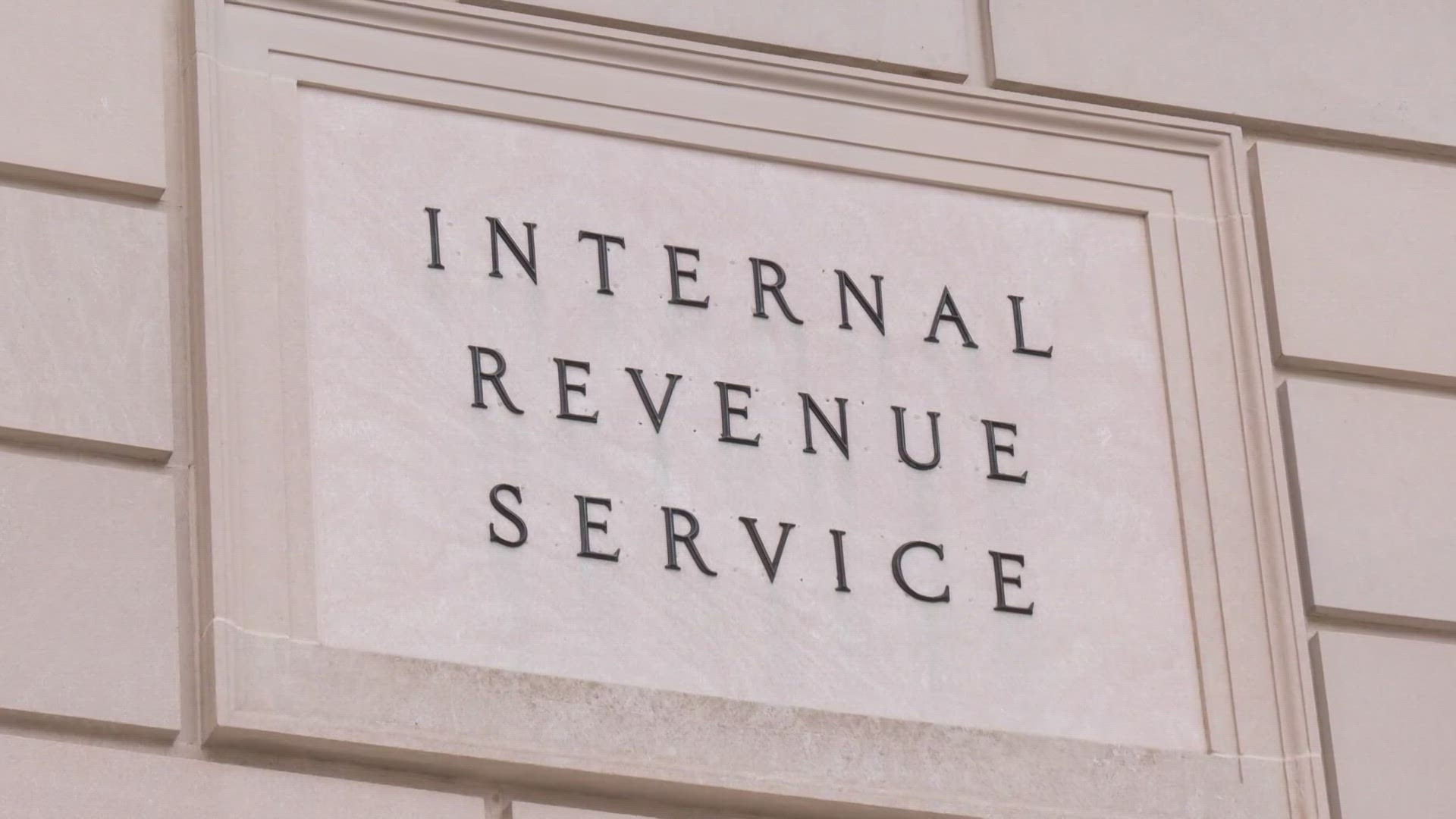TEXAS, USA — Is that an income tax countdown clock ticking? Or worse yet, could it be the sound of a tax audit time bomb just waiting to go off?
If you dread that your tax return might be audited, this may calm you a little: Last year, a government report estimated that for tax years 2010-2019, the overall chance of individual returns being audited, “Decreased from 0.9 percent to 0.25 percent”.
That lower number equates to about 1 in every 400 tax returns being pulled by the IRS for a closer look.
But the report also noted that the odds of being audited were significantly higher if you were among the lowest earners (less than $25,000) or if you were among the highest earners ($500,000 and up).
The data shows that the likelihood of being flagged by the IRS is sharply down in recent years for all income levels. The big reason: The report concluded the IRS budget was cut to the point that the agency didn’t have enough staff for more audits.
Audits of lower income vs. higher income taxpayers
Unfortunately for you, if you are in the lowest income category, the government review found, “Lower-income audits are generally more automated, allowing IRS to continue these audits even with fewer staff."
Very fortunately for you, if you are in the $5 million-plus income bracket, audits have plummeted (see Figure 1 here). Higher income returns tend to be more complex, so digging into them requires more employee hours at the IRS.
According to the report, the average review of someone’s taxes earning $5 million or more takes about 60 hours. That’s much longer than it takes for the lower income levels.
So, if you’re in that upper echelon of earners, you may benefit from a lack of IRS experts… maybe by a lot.
When the agency did audit one of those big money makers is fiscal year 2021, the report found that there was an average recommendation for an additional tax payment of almost $284,810.
IRS now hiring more auditors
But the IRS is now hiring.
Last year, congressional Democrats and President Joe Biden passed and signed into law the Inflation Reduction Act, giving billions of dollars more for IRS tax enforcement, for the express purpose of going after more wealthy tax evaders.
Republicans claim the effort will hurt middle and lower income people instead of the rich. With Democrats still in control of the presidency and the U.S. Senate, a GOP effort to undo the law has been unsuccessful.
If you call the IRS this year, will anyone answer?
In the meantime, hopefully your taxes are in as of the April 18 due date this year. But what if you need to make a follow up call to the IRS this year? The thought of that may conjure up terrible flashbacks if you tried calling during the dreadful pandemic years.
In 2021, the IRS received a record 282 million calls, but answered only 32 million. In 2022, they got 173 million calls—and picked up just 22 million of them.
The IRS has hired additional staff to avoid a repeat. Just this week, The U.S. Treasury sent these bullet points detailing improved IRS service:
- Thanks to the 5,000 new hires made possible by Inflation Reduction Act resources, IRS customer service representatives answered more than 6.5 million taxpayer calls this year, 2.4 million more calls with live assistance since the start of the year through April 7, compared to the same period in 2022.
- IRS cut phone wait times to four minutes, down from 27 minutes in Filing Season 2022.
- IRS achieved an 87% Level of Service with live assistance this filing season, exceeding the 85% goal set by Secretary Yellen last year. This is a more than fivefold increase in Level of Service over Filing Season 2022.
- The IRS integrated new technology features like customer callback options, which will be available for 95% of taxpayers calling for toll-free live assistance by the end of July 2023.
Why your tax bracket may be changing next year
As you’re just getting over this tax season, let’s look ahead to next year’s taxes. That may seem like bad timing, but this is good news.
As a result of inflation being on a tear, tax brackets are adjusting. This especially affects you if you are close to one of the tax bracket border lines. Your bracket is generally your adjusted gross income minus your deductions or the standard deduction if you take that.
Let’s say someone is a single filer and their taxable income is $44,000. That means they make it into the 22% tax bracket, but not all their income is taxed at that amount. Here is a good explainer of how the brackets apply to income.
But in our single filer example above, they would be taxed at a 10% tax rate for the first $10,275 of their taxable income, then 12% for the chunk of taxable income up to $41,775. Then the 22% rate would be applied to the rest of their taxable income.
But next year, with the inflation-adjusted brackets, that single filer would no longer slip into the 22% bracket at all.
Here are the tax brackets for this year’s tax filing season.
And for comparison, here are the inflation-adjusted tax brackets for 2023 (which will apply to the taxes you file next year).

